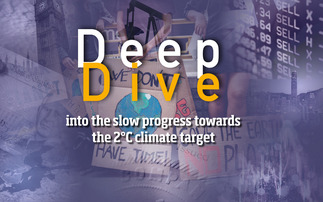Anyone who has seen the TV series Chernobyl knows that when things go wrong with nuclear power the consequences are dire. And while it may seem that matters have evolved since the days of the Soviet Union, the nuclear disaster in Fukushima that happened just ten years ago suggests otherwise.
For many, it is a no-brainer that nuclear power should be categorically excluded from sustainable and ESG portfolios. But in our desire to divest from anything harmful, are we overlooking the positive potential in nuclear energy to facilitate the transition to net zero?
In fact, is it even possible for the world to reach the net zero target, given the current resources available, without resorting to nuclear power?
These are controversial questions. On the one hand, nuclear power carries significant ESG risks, such as radiation exposure, long-term waste management, and high water usage.
On the other hand, nuclear power is more reliable than wind or solar and has a low CO2 emissions profile, which is a clear positive from a decarbonisation point of view.
Laith Khalaf, financial analyst at AJ Bell, says: "What does and what does not belong in an ESG portfolio is not a black and white issue, which is why investors have to really dig down into each fund to find out how it approaches ESG investment, and what exclusions it applies.
"Clearly nuclear energy is clean in the sense that it reduces reliance on fossil fuels, but it does have risks attached, even though these are now extremely well managed. Each investor needs to consider where they sit on the issue of nuclear power, and then find a fund that reflects their preferences."
Among ESG fund managers themselves, there is also no clear consensus on whether nuclear energy belongs in their portfolios.
According to analysis by John Fleetwood, director of responsible and sustainable investing at Square Mile, some 30% of the 59 responsible investment funds analysed have exposure to nuclear energy, typically via utilities that derive energy from nuclear sources.
James Hay, investment associate at MainStreet Partners, observes that actively-managed sustainable or impact funds tend to pick renewables over nuclear energy, while passive ESG strategies may have exposure to nuclear through large-cap holdings.
"We have seen some funds which explicitly exclude nuclear in their ESG policy, but the majority do not have a complete exclusion," he adds.
Controversial stock
However, despite its controversial nature, a 2017 report from Morningstar and Sustainalytics entitled Nuclear Power and ESG: Can They Play Together? suggests the market may be "underappreciating" the positive ESG potential of nuclear energy.
In fact, according to the firm's forecasts, "preserving the existing nuclear fleet is the fastest way to meet US carbon emissions targets".
According to the report, nuclear power has a lifecycle carbon emissions profile similar to renewable energy. In fact, the IPCC's 2014 report stated nuclear power plants emit four times less carbon pollution than solar farms.
Morningstar's report points out that wind and solar "require expensive battery backup or standby natural gas generation, which emits carbon dioxide" to match nuclear as a "firm baseload generation source".
As a result, according to research from Morgan Stanley, the equivalent of around 40 nuclear plants would need to be kept online or commissioned in Europe, and around 30 in the US, to achieve the carbon emissions targets set by the COP21 agreement.
Elizabeth Stuart, analyst, sustainability research at Morningstar Europe, says: "Nuclear energy is low carbon. It is used as part of a 'wedge approach' in many national plans for energy transition as it is much more reliable than solar or wind energy. On cloudy days, nuclear energy which can be dialled up or down can help to even out the supply of energy to the grid."
But she adds that, as with every other aspect of sustainability, "there is no silver bullet and nuclear is so very far from a perfect solution".
For example, even when nuclear reactors are running properly, they use "tremendous amounts of water to cool the reactors", while mining and refining the Earth's finite resources of uranium ore also requires a large amount of energy.
And of course, there is the question of waste management over many generations, given that uranium rods remain dangerously radioactive for 10,000 years.
"There are also second order effects to investment in nuclear energy such as the certainty that this research can be used to create nuclear weapons and that plants are a high value targets should a war break out," Stuart adds.
"Disruption in a nuclear plant invariably won't remain within country borders so there is also the issue of diplomacy to consider. In short, nuclear is a textbook example of a controversial stock and any investor would be wise to question its place in an ESG portfolio."
Paying the price
Despite these concerns, it seems nuclear energy is set to play an important role in the transition to net zero for many nations, including the UK.
Prime Minister Boris Johnson's 'ten-point plan for a green industrial revolution' includes commitments to "advance nuclear as a clean energy source" by investing in large scale nuclear and the development of "the next generation of small and advanced reactors", which the government believes could support 10,000 jobs.
China has also been steadily increasing its investment in nuclear power, alongside renewables, in a bid to shift away from coal.
Innovation is also underway to minimise the harmful effects of nuclear power. For example, the US Nuclear Regulatory Commission (NRC) recently approved an innovative small modular reactor (SMR) design by NuScale Power, a technology Professor Cameron Hepburn of the University of Oxford Smith School of Enterprise dubbed "the great hope of the nuclear industry".
The technology includes increased safety features, such as being able to passively cool itself without any need for additional water, power or operator action, which would significantly reduce its environmental footprint.
As such, Professor Hepburn believes nuclear is "likely to play a role, and probably a relatively important one, to get us to net zero", but it faces fierce competition form wind and solar.
The pressure is intensified by the falling costs of renewable energy, which are making the high cost of building nuclear infrastructure less appealing.
The global share of power generated from nuclear energy has fallen from 13.5% in 2008 to 10% in 2018, and nuclear phaseouts planned across Europe and the US over the next decade are expected to reduce reliance on nuclear power further, according to Robeco.
In a note, the manager said it expects nuclear in Europe to have around 35% of the capacity it has today by 2040, while in the US this could fall to 56% and to 71% in South Korea.
Instead, the balance is expected to shift towards renewables, which is expected to lead to a decentralisation of the power grids, posing further challenges for nuclear.
Jonathan Cohen, partner at Howard Kennedy, says: "Currently, nuclear power projects are being developed at very high costs and it is difficult to finance new projects without large state expenditure.
"An example of this is the building of new nuclear reactors at Hinkley Point which has led to significant construction delays and budget overruns."
Better alternatives
Due to the high costs, Cohen believes private sector investors will have to support the building of new nuclear power plants that are both safe and environmentally sustainable.
However, at this stage, wide scale support from the private sector just is not there, with investors increasingly choosing to stay on the safe side and invest in renewables instead.
Robeco, for example, excludes electricity utilities that generate more than 30% of their power from nuclear sources from all of its sustainable strategies, and does not invest in nuclear power at all in its RobecoSAM Smart Energy Equities strategy.
This decision is driven by a combination of "unique risks", negative environmental impacts, relatively high costs of nuclear and the "impressive technological and cost developments in both renewables and storage technologies".
Mark Campanale, founder of the Carbon Tracker Initiative, says: "Our view is that given so many cheaper renewable energy resources available, why would anyone want to go to the expense of what is an uncompetitive technology on price, one which takes hundreds of years to clear up its waste?"
According to Eduardo Monteiro, co-CIO at Victory Hill Capital Advisors, even if nuclear is to play a "robust role" in a country's energy supply, it has too many shortcomings as a sustainable investment alternative, and should therefore be avoided.
"The waste generated will be a legacy for future generations to deal with and as such investors need to think about the very real negative impact these holdings will have in both the broader sense but also to financial returns," he says.
"With the pace at which technologies are evolving, a future in which nuclear has no role to play is imminent. We therefore believe it is possible to construct ESG portfolios without any exposure to nuclear power. Investors already have very attractive alternatives which can play a crucial role in supporting more sustainable energy developments."
MainStreet Partners' Hay adds that from an ESG fund manager's point of view, investing in nuclear would mean redirecting capital away from renewable energy technologies.
"Such managers may naturally prefer to invest in renewables to support their interpretation of ESG investing and the transition to 'clean' energy more widely," he says.
Sustainable Investment Festival, 22-24 June
Investment Week's parent company Incisive Media will host its inaugural Sustainable Investment Festival this summer, featuring keynote speakers, innovative breakout events and sessions to help investors navigate this rapidly-evolving area of the market. Click here for more information.














